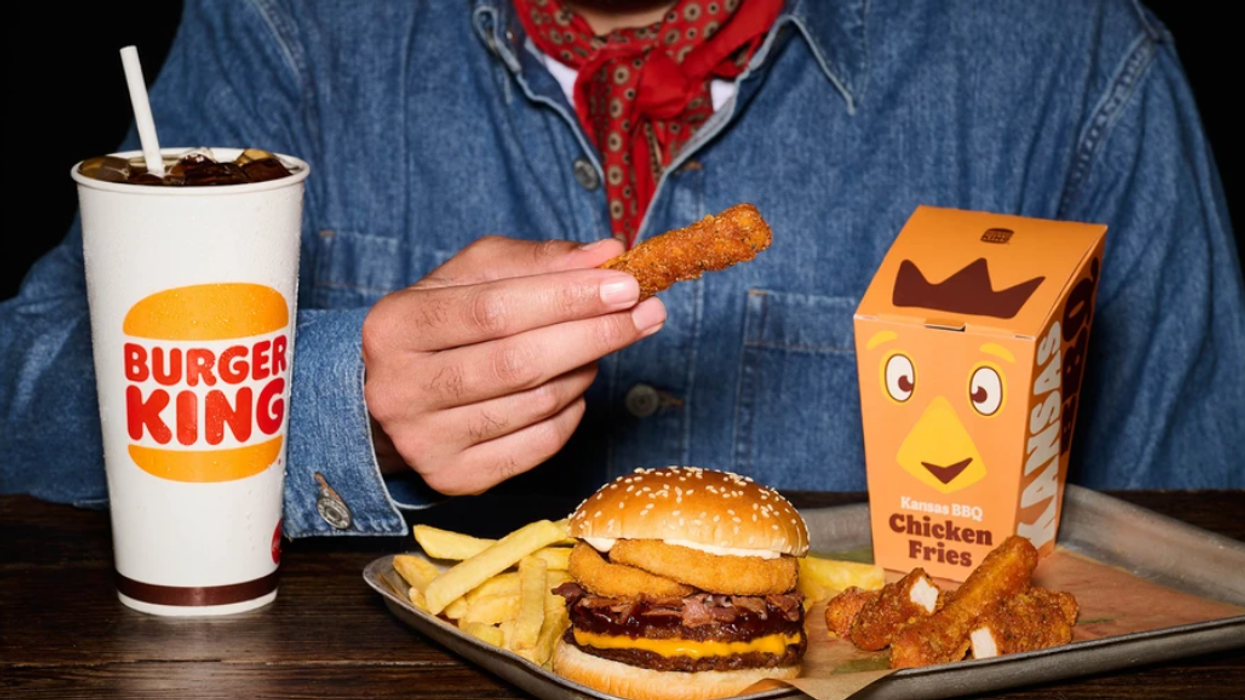Burger King UK has launched one of its biggest menu updates in recent years, introducing new items and bringing back popular favourites as part of its summer offering.
The latest additions include the Kansas BBQ Chicken Fries, a twist on the original Chicken Fries, featuring a crispy golden coating with a sweet and smoky barbecue flavour inspired by Midwestern American cuisine. These are aimed at customers looking for a flavourful snack or something to share during the warmer months.
Also introduced is the Kansas BBQ King Box, a value meal priced at £5.99. The box includes the new BBQ Chicken Stacker burger, four Kansas BBQ Chicken Fries, regular fries, and a drink. The Stacker, which is expected to be a key draw, is designed to appeal to those seeking a satisfying barbecue-inspired option.
Burger King has also brought back the Gourmet Kings Bacon Caesar range, which proved popular with customers during previous promotions. This premium line-up includes the choice of a 100% British and Irish Angus beef burger or a crispy-coated chicken breast, both topped with creamy Caesar mayo. The sauce is described by the brand as offering a rich, garlicky flavour for a more indulgent experience.
In addition, the fast-food chain is launching a Spicy Mayo range, introducing a fiery twist to two well-known menu items – the Whopper and the Chicken Royale. These updated versions aim to give customers a bolder option while maintaining the core elements of the classic burgers.
To mark the launch of the summer menu, Burger King UK is offering limited-time deals via its mobile app. From 20 to 22 May, customers can take advantage of a buy-one-get-one-free offer on the Gourmet Kings Bacon Caesar burgers. A similar promotion will run for the Spicy Mayo range between 27 and 29 May.
Burger King UK’s latest menu revamp highlights the brand’s ongoing efforts to introduce variety and value while catering to evolving customer preferences. With a combination of new flavours and returning favourites, the chain aims to attract both loyal fans and new diners during the summer period.





